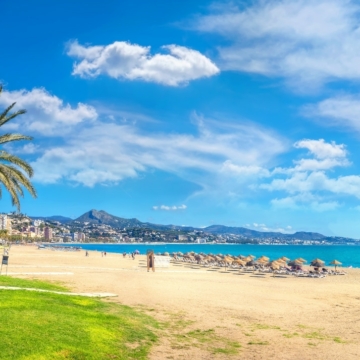looking to buy a home?
Submit this Form and Benefit from our 25 Years' Experience & Strong Local Network.When you own a property in Spain you’re liable for certain annual taxes. In this article, we take a look at the taxes you are likely to pay every year on your Spanish property.
Council tax
Also known as council rates, this tax (Impuesto sobre Bienes Inmeubles/IBI in Spanish) is levied by the council in the area where your property is located. It is used to pay for council services such as street cleaning and maintenance, local police, cultural and sports facilities and activities, beach lifeguard services and cleaning, etc.
The amount each property pays depends on its fiscal value and an annual rate determined by each council. As a rule of thumb, council tax costs more in coastal resorts and cities than it does in inland towns and villages. Some councils revise the rate annually, although there are legal limits to how much they are allowed to increase the tax each year.
It’s best to pay council tax via direct debit through your bank account link to bank account piece since this ensures payment is always made. Make arrangements for direct debit as soon as possible after you purchase the property.
The number of annual installments for council tax varies from one area to another. In some resorts, you pay an annual amount. On the Costa del Sol, this is the case in Fuengirola and Mijas, for example. In other locations, payment is made in installments – Marbella property owners pay twice a year.
Refuse tax
In addition to council tax, some areas – for example, Fuengirola and Marbella – charge an annual fee (tasa de recogida de basuras) to pay for refuse collection and disposal and recycling services. This is generally a single payment made annually, also via direct debit. In this instance, fees vary depending on the size of your property and tend to range between €100 and €500.
Community fees
If your property in Spain forms part of a community of owners (most townhouse and apartment developments do), you’ll also be liable for community fees. These are used to finance the maintenance of communal services – cleaning, lifts, upkeep of gardens and pool, security guards etc – and to pay for utilities used for these services.
Community fees vary hugely and depend on the level of services you receive. For example, in an apartment block with no pool, gardens or concierge service, you may pay as little as €100 a quarter. If, on the other hand, you’ve bought a property with a range of communal services, expect to pay at least €100 a month. Be aware that in some developments, community fees can run to several thousand euros a year. We have written a comprehensive article on Community Fees.
Non-resident taxes
As well as annual taxes levied by the local council and fees payable to the community of owners, you yourself are also liable for taxes.
Wealth tax
Non-resident Spanish property owners are also currently liable for wealth tax (Impuesto sobre el Patromonio). However, as from the 2023 tax year, wealth tax will no longer be applicable in Andalucia.
Until the 2023 tax year, as a non-resident, you are only liable for taxes on assets located in Spain, which in most cases is your property. The amount of wealth tax you pay depends on the value of your property. Unlike residents (see below), non-residents have no tax allowance for wealth tax on property. Tax for a small apartment on the Costa del Sol typically comes in at around €150 a year while a villa costs from €400.
Wealth tax is paid annually for the previous year so, for example, the amount for 2022 is due by 31 December 2023. This tax is constantly being revised and in 2022, it was abolished in Andalucia from the 2023 tax year.
Income tax
If you earn an income in Spain, e.g. from letting your property, you’re also liable for tax on your earnings. This is payable annually and certain deductions apply – for example, mortgage loan interest repayments, property maintenance expenses, insurance cover etc. The amount you pay depending on your nationality. In 2018, non-residents from the EEA were liable for a flat rate of 19% and non-residents from outside the EEA for a flat rate of 24%.
Note: non-resident taxation in Spain is a complex subject and even more so if you don’t speak Spanish. Always take expert advice and preferably put your tax matters in the hands of a fiscal adviser.
Resident taxes
Residents in Spain are liable for two main taxes a year:
Income tax
Depending on your annual income and how you pay tax, you make an annual declaration. You may be liable for more tax or get a tax return. Your principal residence (i.e. your home) is exempt from income tax, but it is levied on other properties you own – the exact amount is a percentage of their fiscal value.
Wealth tax
Residents are also liable for wealth tax on their worldwide assets including those in Spain. However, generous exemptions – e.g. €700,000 on all assets plus €300,000 on the principal residence – means that in practice, most residents are not required to pay wealth tax.
The Spanish tax year is the natural calendar year and tax returns for the previous year must be filed between April and 20 June. For example, income tax returns for 2017 had to be filed by 20 June 2018.



